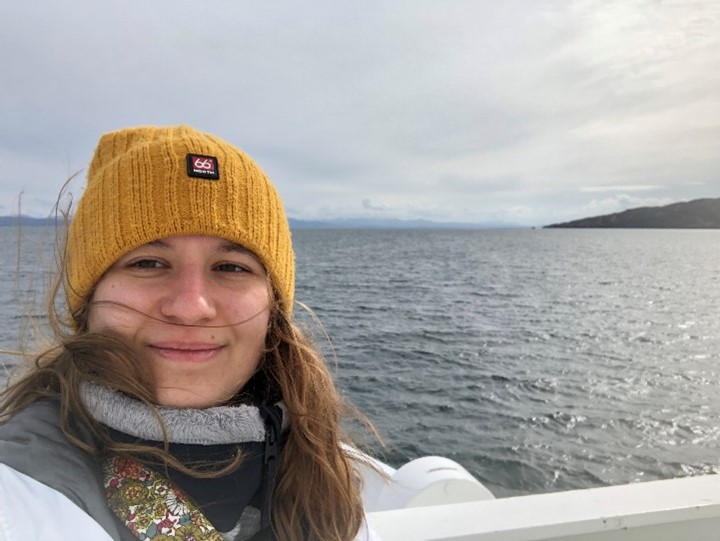
| Academic Year | 2024-2025 |
| d.pavat.24@abdn.ac.uk | |
| Institution | University of Aberdeen |
Biography
School: School of Biological Sciences
Pronouns: she/her
Project: Impacts of anthropogenic environmental change on southern rockhopper penguin demography and behaviour
Supervisors: Dr Thomas Bodey, Dr Paul Caplat & Prof Beth Scott
Undergraduate Education: BSc (Hons) Life Sciences – Biology, Université Grenoble Alpes
Postgraduate Education: MSc Marine Conservation, University of Aberdeen
Research: Environmental variability plays a crucial role in shaping the foraging behaviour and demography of seabird populations, with significant implications for species conservation. In recent decades, southern rockhopper penguins (Eudyptes chrysocome) have experienced dramatic declines in the Falkland Islands, with mass mortality events thought to be linked to changes in sea temperatures and prey availability. As environmental fluctuations are expected to intensify due to climate change, the Falkland Islands—home to a major portion of the global population—offer a critical opportunity to study how this iconic predator responds to environmental change.
My research will explore how environmental variability affects both the foraging behaviour and population dynamics of southern rockhopper penguins across multiple colonies in the Falklands. By utilising over 10 years of archival data alongside new fieldwork, I aim to investigate these dynamics using biologging techniques (e.g., GPS and time-depth recorders) to track at-sea behaviour. To further understand foraging preferences and potential changes in prey availability over time, I will employ stable isotope analyses, DNA metabarcoding, and regurgitate studies. Additionally, I will assess and compare key demographic parameters, such as breeding success and population size, to evaluate how environmental shifts impact the overall population survival.
Understanding the relative importance of various environmental drivers, and how they interact, is crucial for predicting species responses at both individual and population levels. Ultimately, my research will contribute to broader marine spatial planning and inform ecosystem-based management strategies in the Falkland Islands, aiding in the conservation of this vulnerable species.
Other:
- CASE Partner: Dr Alastair Baylis at South Atlantic Environmental Research Institute (SAERI)
- Twitter: https://x.com/DianePavat
- Personal website/research blog: https://dianepavat.wixsite.com/marinebiology





















































